Three New Titles from Crown House Publishing

“This is an easy-to-follow, practical and useful handbook for busy teachers, written by someone who clearly understands both mindfulness and the pressures of the classroom and staffroom.”
Katherine Weare, Emeritus Professor, and co-author of the bestseller Happy Teachers Change the World
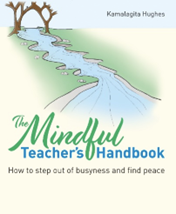
The Mindful Teacher’s Handbook: How to step out of busyness and find peace
by Kamalagita Hughes
ISBN: 9781785836428
Price: £16.99
Published by: Crown House Publishing
Date of publication: 14th November 2022
A practical guide to mindfulness that will empower teachers and school staff to take better care of their well-being and find calm in the day-to-day hustle and bustle of the school setting.
Poor mental health in schools is on the rise, amongst teachers and students alike. Could there be a mindful solution?
An ever-increasing workload and pressure from all angles means it’s no surprise that three-quarters of teachers experience work-related stress, with nearly half reporting burnout, depression, anxiety or panic attacks at work.1 At any one time, more than half are considering leaving the profession due to poor health and figures reported for senior leaders are even higher.2 There is a national teacher shortage, with numbers recruited for Initial Teacher Training (ITT) falling and one in seven of those leaving the profession within the first year.3 We are losing our most experienced teachers, and we can’t recruit and retain new ones.
A clear link has been made between young people’s well-being and their ability to learn: if a young person is struggling with issues at home or at school, they can’t settle and learn as well as one who has a stable home life or enjoys meaningful friendships at school.4 But what about the link between teachers’ wellbeing and their ability to teach? How can we hope to help children learn and be mentally well if the teachers standing in front of them are not?
In the last decade, far-sighted employers like Apple and Google have offered mindfulness training to employees to help them manage stress and to thrive. US Marines have also been taught mindfulness to prepare for combat. In the UK, mindfulness has been taught by the NHS, in schools and in workplaces such as heavy industries, manufacturing, banks, prisons and probation settings.
As school leaders and policy makers consider ways of reducing burnout and mental health issues amongst teachers, together with the knock-on effect of the retention crisis, the contemplative practice of mindfulness offers a clear solution.
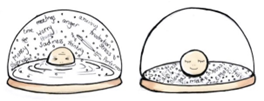
Mindfulness-based stress reduction (MBSR) is a practice approved by the National Institute of Clinical Excellence (NICE) in the UK for the prevention of recurrent depression and is offered routinely by the NHS. Clinical trials have shown that mindfulness-based therapies are at least as effective for treating clinical depression and anxiety as anti-depressants.5 The practice of mindfulness has proven benefits on physical well-being, such as improving sleep and lowering blood pressure, heart rate and cortisol. But it can also positively impact on social and emotional skills such as learning, cognition, executive function, attention and focus, and cognitive flexibility.6 In one study, Mindfulness-Based Interventions (MBIs) for teachers was found to ‘help school staff to relate to students with increased empathy and create calmer and more focused classroom environments’.7
Now, in a practical new book called The Mindful Teacher’s Handbook, author and teacher Kamalagita Hughes shows how teachers and school staff can take better care of their well-being and find calm in the day-to-day hustle and bustle of the school setting. The book
provides a lively and engaging blend of top tips, research evidence, case studies, guided meditations and suggested exercises for all – both for those new to mindfulness and for those who want to refresh their practice.
Providing a thorough, grounded understanding of mindfulness and its benefits for the school community, Kamalagita explores the links between well-being and education and sets out how improved staff and student well-being can cultivate a better teaching and learning environment for all. The book also offers practical strategies that school staff can put into practice straight away – both for their own well-being and for that of their pupils.
Suitable for teachers, teaching assistants and school leaders.
“Get this book and allow it to be an ongoing companion to your journey. Keep revisiting the pages. It offers rich resources supporting you to keep your mindfulness practice going and creatively adapt it to you and your life.”
Professor Rebecca Crane, PhD, Director, Centre for Mindfulness Research and Practice, Bangor University
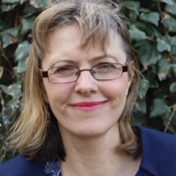
Kamalagita Hughes has been practicing mindfulness for 25 years and teaching it for 15. She is a qualified teacher and lecturer with substantial experience in the classroom as well as in teacher training, further education and higher education. Kamalagita is also the education lead for Mindfulness in Action and a lead trainer for the Mindfulness in Schools Project (MiSP).

“This is a powerful, hard-hitting book about how we ensure that the curriculum truly inspires curiosity and challenge in primary-aged learners.”
Dame Alison Peacock, DL, Chief Executive, Chartered College of Teaching
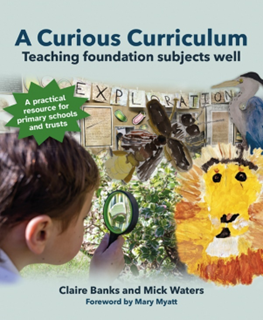
A Curious Curriculum:
Teaching foundation subjects well
By Claire Banks and Mick Waters
ISBN: 9781785836435
Price: £24.99
Published by: Crown House Publishing
Date of publication: 31st October 2022
Foreword by Mary Myatt
Details the insightful and transformational steps that a school can take towards designing and delivering a rich, rigorous and wide-ranging curriculum.
Up and down the country, schools are grappling with the challenge of curriculum design and the teaching that accompanies it. The first issue facing schools is to make sense of the many and competing demands in terms of what children should be taught.
The second challenge schools face is how to interpret curriculum expectations in terms of the method of teaching – performance management and target-setting have resulted in lesson observations and the emergence of ‘good lesson’ templates to ensure that teachers include the essential features. The problem with this is that children vary so much that the blueprint fails in a significant proportion of cases. All of this has now come into sharp relief because the inspection framework has changed to include a focus on the curriculum.
Aside from the pressure of keeping inspectors happy, a common thread for many schools is concern about the effectiveness of their curriculum and whether it ensures positive learning outcomes for pupils – particularly since the revision of the national curriculum in 2013. While English and mathematics are traditionally well served in terms of resources, thinking and planning around curriculum – and with good reason – the same cannot be said for other subjects.
The reasons for the foundation subjects being treated like poor relations are understandable: pressures of time, absence of resources and lack of knowledge about where to find good materials. But, with the sector now focused on levelling up the wider curriculum, many have realised that it should be about more than just tarting up old plans or adapting a bought in scheme.
All children deserve an engaging, exciting curriculum designed to spark their curiosity, feed their imagination and develop their skills and knowledge. So how can school leaders ensure this is what they receive?

We know that the balance of knowledge, skills and understanding in any curriculum is vital to its success; however, depth of learning and excellence within a curriculum is often left to chance or to individual teacher expertise.
In their new book, A Curious Curriculum, Claire Banks and Mick Waters share the story of one multi-academy trust which designed and delivered a shared educational vision, a rationale for excellence in the curriculum, and the resources and support given to help reduce teachers’ workload. The book aims to support head teachers and curriculum coordinators by sharing best practice, exploring the thinking behind it, and describing the process of securing consistent benefits for all children.
“We wanted teachers to commit to a curriculum for their children – a curriculum that mattered for their community rather than one that was simply packaged for them to deliver. The book is not a model curriculum that can be uprooted and planted in any school, but we hope that the discussions, explanations, assertions, asides and advice will resonate with you as you relate the circumstances to your own school setting.”
Suitable for executive leaders, head teachers, curriculum coordinators and subject leaders in primary school settings.
“An honest and insightful account of how one trust has been able to foster and nurture a curriculum that provides an equity of provision and opportunity for all children… A crucial read for all pragmatic educators who are interested in planning for the unpredictable and cultivating joy.”
Vikki Pendry, CEO, The Curriculum Foundation

Before becoming Director of Education for The Olympus Academy Trust, a cross-phase multi-academy trust in north Bristol, Claire Banks was a head teacher for nine years in an inner-city primary school. Throughout her career she has been interested in social and emotional learning and school climate, which has led to her work on leadership culture.
Claire now works on curriculum design and school improvement in a system leadership capacity, offering school-to-school support to school trusts. Her passion for succession planning for the profession has led to her coaching and mentoring on aspiring heads and women in leadership programmes.
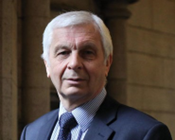
A former head teacher, Mick Waters works closely with teachers and leaders in schools, MATs and local authorities to support the development of teaching approaches and curriculum to ensure the best learning outcomes for children.
For some years he was Director of Curriculum for England, based at the Qualification and Curriculum Authority (QCA), and before that held the post of Chief Education Officer for the City of Manchester. He is also invited to work at a policy level with government in different parts of the world.

“Powerful Questioning is going to prove a potent tool to every teacher who reads it. Chiles brilliantly marshals research and practical strategies to unpick the subtle but crucial art of questioning in the classroom.”
– Alex Quigley, author of Closing the Writing Gap, National Content and Engagement Manager, Education Endowment Foundation
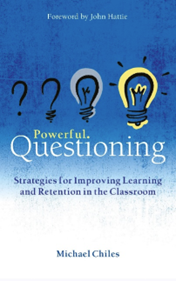
Powerful Questioning:
Strategies for improving learning and retention in the classroom
ISBN: 9781785835964
Price: £14.99
Published by: Crown House Publishing
Date of publication: 30th April 2023
An evidence-based examination of the power of questioning in the classroom and how it can be improved.
The power of questioning: improving learning & retention in the classroom
By the age of three, children are already deep into the ‘why’ questions, as they try to understand their world, build a theory of mind and express their curiosity. By age eight they will have switched to asking ‘what’ questions, and so often lose their innate sense of wonder, mimic their teachers and aim to be compliant and a ‘good pupil’. Teenagers are more likely to ask ‘why not’ as their development of autonomy clashes with the school and often family desire for compliance. If only we could retain all these forms of questions, and if only we considered questions as about more than seeking answers but inviting thinking. If only we saw errors to questions not as sources of embarrassment but as opportunities for learning.
Classroom teachers worldwide spend an estimated 40% of their time in the questioning–response mode.1 Therefore, we can deduce that questioning is a pivotal element in the teaching and learning process, and that asking good questions plays a critical part in supporting pupil achievement.

The use of questioning in the teaching and learning process dates back to one of the most influential users and developers of questions, the Greek philosopher Socrates. Socrates believed that by asking questions we encourage reflection, and their use is most effective when we create a continual loop of dialogue between the asker and the receiver, to allow movement from surface to deeper level thinking. Questions are the tool that enable
teachers to transfer knowledge, leading to the conclusion that effective questioning is effective teaching.
Now, in his authoritative new book Powerful Questioning: Strategies for improving learning and retention in the classroom, Michael Chiles presents a research-based examination of the power of questioning in the classroom and how it can be improved. Michael outlines a set of core principles, recommendations and classroom-based scenarios that can be used to implement powerful questioning in the classroom and school. Throughout the book, teachers are invited to reflect on their own practice and experience of asking questions with a series of activities that can be completed either individually or with colleagues.
Powerful Questioning describes the many ways we can use questions and pushes teachers to move beyond simply checking the state of pupils’ knowledge and instead use questions that activate thinking, promote reflection and pose challenges in the classroom. Questions can inform the teacher of their impact, lead to different directions in the lesson and invite joint teacher–pupil investigation of answers.

This book examines the reasons behind the questions we ask and reveals the power of asking the right questions, in the right way, at the right time. Michael investigates the ways to build a questioning culture by increasing pupil questions and explains beautifully how to use questioning so that pupils can check for understanding and effectively question each other to build collective efficacy about their learning.
Essential reading for all teachers and school leaders.
“Michael Chiles provides a plethora of examples underpinned by research to elicit our own deep thinking of how and why we ask questions in our classrooms. A superb addition to any classroom teacher’s pedagogical bookcase.”
– Jon Tait, education leader, author and speaker

An experienced school leader and principal examiner, Michael Chiles has been teaching for over 15 years. He has delivered training both nationally and internationally, supporting teachers in their approaches to implementing effective assessment and feedback practices. Currently an Assistant Principal, he writes blogs at GeogHod, sits on the Chartered College of Teaching Council and enjoys walking in the British countryside with his Border Collie.
Humour ‘in the box, or ‘outside the box’, found online by Hanna Kryszewska, Poland